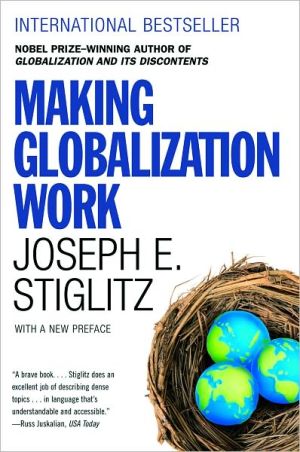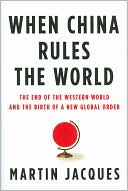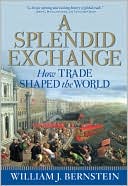Making Globalization Work
"A damning denunciation of things as they are, and a platform for how we can do better."—Andrew Leonard, Salon\ Four years after he outlined the challenges our increasingly interdependent world was facing in Globalization and Its Discontents, Joseph E. Stiglitz offered his agenda for reform. Now in paperback, Making Globalization Work offers inventive solutions to a host of problems, including the indebtedness of developing countries, international fiscal instability, and worldwide pollution....
Search in google:
“A damning denunciation of things as they are, and a platform for how we can do better.”—Andrew Leonard, Salon The New York Times - Jeffry A. Frieden Stiglitz has given us a well-written and informative primer on the major global economic problems. He helps his readers understand exactly what is at stake.
Ch. 1Another world is possible3Ch. 2The promise of development25Ch. 3Making trade fair61Ch. 4Patents, profits, and people103Ch. 5Lifting the resource curse133Ch. 6Saving the planet161Ch. 7The multinational corporation187Ch. 8The burden of debt211Ch. 9Reforming the global reserve system245Ch. 10Democratizing globalization269
\ From Barnes & NobleWhen Nobel Prize-winning economist Joseph E. Stiglitz talks, people listen. The author of Globalization and Its Discontents boasts an almost incomparable resume: He has taught at MIT, Yale, Stanford, Oxford, Princeton, and Columbia and served for three years (1997-2000) as senior vice president and chief economist of the World Bank. Making Globalization Work presents his learned conclusions about the global economy in clear, accessible language. Dr. Stiglitz explains the basics of the globalization debate; describes how mounting American debt may require a restructuring of the global financial systems; and explores dilemmas of free trade and environmental ruin.\ \ \ \ \ Jeffry A. FriedenStiglitz has given us a well-written and informative primer on the major global economic problems. He helps his readers understand exactly what is at stake.\ — The New York Times\ \ \ Library JournalNobel Prize winner Stiglitz (former chairman, Council of Economic Advisors; Globalization and Its Discontents) identifies six existing indications that globalization has yet to live up to its promise: the pervasiveness of poverty, the need for foreign assistance and debt relief, the aspiration to make trade fair, the limitations of liberalization, the need to protect the environment, and the flawed system of global governance. In addition to reiterating this criticism from his previous megaseller, Stiglitz here presents concrete methods to enable political globalization to proceed in accord with economic globalization. For example, the IMF, World Bank, and World Trade Organization and a host of additional, soon-to-be-created international political organizations need to start democratically representing the interests of developing countries and stop serving as platforms for the "Washington Consensus." The author occasionally slips by adopting the same type of rhetoric that, he argues, has mystified the processes of economic globalization, e.g., when he suggests that a balanced intellectual property regime serves the interests of every nation developed and developing alike. Overall, his new work succeeds admirably at presenting a concrete course of action for strengthening the institutions and processes of political globalization. Accessible to nonspecialists, this book is recommended for all academic libraries. Cynthia Cameros, Teaneck, NJ Copyright 2006 Reed Business Information.\ \ \ \ \ Soundview Executive Book SummariesFighting The Good Fight\ Many economists and world leaders agree that globalization is supposed to create higher living standards, increased access to foreign markets, more foreign investment and open borders. But former World Bank Chief Economist and Nobel Prize winner Joseph Stiglitz argues in his latest book, Making Globalization Work (a self-described sequel to his 2002 book, Globalization and Its Discontents), that globalization is desperately failing the 80 percent of the world's population that lives in developing countries and the 40 percent that lives in poverty. \ The Problems\ Stiglitz's overall objection is not to globalization itself; it's to how globalization is managed. He argues that the institutions tasked with managing globalization - the International Monetary Fund (IMF), the World Bank and the World Trade Organization (WTO) - help developed nations more than poor nations and place profit ahead of environmental health and better standards of living.\ One reason for this, Stiglitz argues, is the United States' excessive influence on the system. The IMF, for example, assigns votes according to economic size, giving the United States effective veto power. Further, the U.S. president appoints the head of the World Bank. This concentration of power has led to what Stiglitz calls "the Washington Consensus," his term for the lock-step policies shared by the IMF, the World Bank and the U.S. Treasury. The result is that these institutions are only really accountable to wealthy countries rather than the poor countries they are tasked with helping.\ What's worse, Stiglitz writes, is that when poor countries seek aid, the Washington Consensus attaches economic policies and lending conditions that are often counterproductive and even undermine the sovereignty of those nations. Its requirements often include massive privatization, spending cuts, lower import tariffs and exposure to volatile foreign capital - four things Stiglitz explains are precisely what developing countries don't need when they're in dire straits. Consequently, Stiglitz argues, countries that have followed the advice of this powerful block have failed almost 100 percent of the time to maintain economic stability.\ The Solutions\ Stiglitz offers a litany of specific reforms to the globalization management system, but, ultimately, they all rest on the (some might say provocative) idea that the regulatory power of government, rather than unfettered capitalism, makes free markets work. Absent this oversight, he writes, markets dissolve into chaos, dishonesty and secrecy.\ One of Stiglitz's biggest proposed reforms is to the global reserve system's dependence on Treasury securities, which he argues is actually a mechanism for funding U.S. overconsumption habits. Stiglitz calls for a new, global reserve currency (called "global greenbacks") system that would stabilize the worldwide yin-yang effect of trade surpluses and deficits.\ Stiglitz also proposes global regulation that would restrict activities and political instabilities that harm the environment, and would provide recourse when one nation's environmental actions harm other countries. Stiglitz further argues that poor countries are entitled to compensation for maintaining their biodiversity, especially those with rainforests that spawn drugs and sequester carbon dioxide.\ Western banks and multinational corporations are also on Stiglitz's list of institutions needing global oversight. He argues that today's thick corporate veil regrettably tends to relieve employees of moral responsibility. Part of the solution to this, he writes, is more leeway regarding global class-action suits and more enforcement of intellectual property laws so that, for example, AIDS drugs become more accessible rather than more profitable.\ Ultimately, Stiglitz concedes, the solution to many of the problems of globalization management lies at the feet of poor countries, which must break the bribery cycle between their governments and international companies, sell their natural resources for a fair price, spend - and save - their money wisely and learn to manage currency fluctuations.\ Despite all the protest, Stiglitz is clearly still a cautiously optimistic supporter of globalization. But he is confident that the United States cannot continue to control the world's major economic aid institutions without producing results for the poor countries of the world.\ Why We Like This Book\ Making Globalization Work explores the problems surrounding the management of globalization. It contributes considerably to the political discourse about the role of governments in the free market through its nuts-and-bolts appraisals of NAFTA, the WTO, the Kyoto Protocol and many other elements of today's globalization debate. But the heart of the book is about finding better ways to make globalization work for the hundreds of millions of people who live in developing countries and in poverty. Copyright © 2007 Soundview Executive Book Summaries\ \ \ \ \ \ Kirkus ReviewsIf the free market is the answer to the world's woes, then why is so much of the world getting poorer? Nobel Prize-winning economist Stiglitz (The Roaring Nineties, 2003) ventures some persuasive answers. There are many ways to make globalization work, writes Stiglitz. Regrettably, the U.S. and institutions such as the International Monetary Fund and the World Bank are not practicing any of them. Indeed, he argues, "the world's sole superpower has simultaneously been pushing for economic globalization and weakening the political foundations necessary to make economic globalization work." The U.S. consistently plays on an unlevel field, demanding that developing nations open their markets on terms dictated by American interests; globalization as it is now practiced demands that sovereign nations become less sovereign, even as it forces upon developing countries a one-size-fits-all economic system that "is inappropriate and often grossly damaging." America's insistence on the primacy of the free market really means a market that is free for the biggest players, though even a theoretically pure free market is not necessarily the best solution in many instances. For example, Stiglitz writes, many of the thriving economies of East Asia, such as China's, are thoroughly managed, while social democracies such as those of Scandinavia channel much of the GDP into long-range, state-controlled financial sectors for the interest of future generations; meanwhile, free-market experiments in the former Soviet Union have proven disastrous except for a few lucky capitalists. Reining in inequalities is one of the foremost tasks for a globalism worthy of the name, Stiglitz suggests; those calling for ThirdWorld debt relief are on the right track. But there is more to it, he adds, including a rethinking of innovation-stifling intellectual property conventions and a restructuring of international institutions to serve their neediest constituents fairly. A thoughtful essay that ought to provoke discussion in certain well-appointed offices, to say nothing of development and aid circles.\ \








